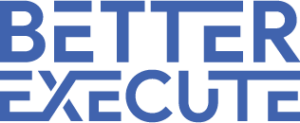- [email protected]
- 7402 Center Ave. Huntington Beach, CA 92647
The aim of this blog series is to remove these common business leader blind spots by focusing your attention on each issue and bringing visibility and understanding to concepts that will be easier to see and, therefore, improve over time. Let’s take a look at the benefits of Collaborative Accountability.
This article focuses on the second of five blind spots many business owners have when trying to grow from five to 50 employees. In our previous article, we discussed the first blind spot which was around not seeing the value of consistent company planning.
The second Blind Spot involves not seeing how to hold employees accountable in a collaborative way. The issue is often that the business owner doesn’t realise that employees are not performing to standard because they are not clear enough on what is expected of them, rather than simply not caring. Let’s look at how collaborative accountability can resolve this issue.
There are two areas employees are typically less than clear on. The first is the big picture of company vision and direction. Most employees are only provided feedback from a vantage point of their specific position and not at a company level. This makes it harder for the team member to understand the macro goals and objectives and it ends up being more difficult for them to adopt collaborative accountability and make decisions based upon the company’s greater good.
The second issue is that the team member’s seat, or position, isn’t clearly defined, making it challenging for the employee to fully understand what they are accountable for. This is often because the manager(s) have not taken the time or had the skills to clarify the employee’s seat in a clear and concise way. Rather, they have an organisational chart and a Position Description (PD) and expect the employee to infer the true meanings of how they need to perform beyond what is written down. This causes the manager to hold the team member accountable for tasks they weren’t even aware of.
It is the company’s obligation to share with all employees the company direction and do so consistently so that the strategies and ideas can sink in over time. They say you need to tell someone seven times before they get it; employees are no different, especially when talking about the goals and ambitions of someone else’s company.
Once you are clear with your employee about where the company is going and what their seat is accountable for, then you are ready to begin monitoring their progress. This is where the 1:1 review strategy and collaborative accountability become important. Although there are a number of different elements to a 1:1 review with a team member, the most important aspect is providing them with clear and consistent feedback on how they are performing as it relates to the company’s expectations. Most notably, how they are performing in relation to the company’s core values and the key deliverables for their particular seat. When these two components (core values and key deliverables) have been clearly defined and discussed in advance, providing high-quality 1:1 reviews will be straightforward.
In conclusion, if you want to hold develop collaborative accountability in a productive way to ensure they are clear on where the company is going, what is expected of their performance and to provide clear ongoing feedback on how they are progressing. This clarity takes the emotion out of the process and is easy for all types of people to get behind. Collaborative accountability isn’t simply telling your staff members what is expected of them, it is actively collaborating with them to define the role as you both see it and are able to sustain.
If you are looking at how to become more clear with your employees on what you expect from them please review our posts on the accountability chart and the importance of company planning. And as always, feel free to contact us with any questions we may be able to provide insights on directly.
Until next time, enjoy the process!

Learn how to double your client referrals in just 30 days using a proven Customer Management Framework, For FREE.
The Game Changing FREE Framework Every B2B Business Needs.
We promise to keep your data safe as stated in our privacy policy.